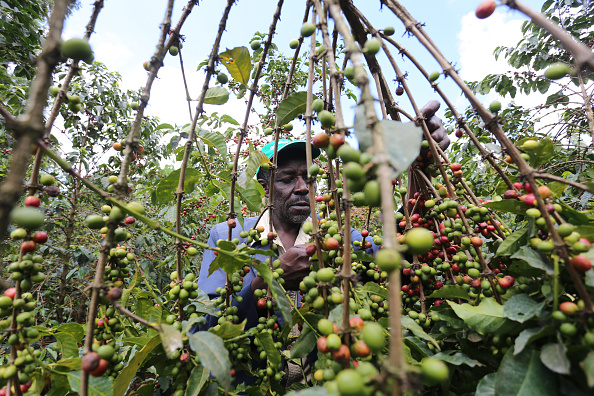
Kenya plans to reform coffee sector

Kenya said on Friday it plans to undertake far-reaching institutional, legal and support-services interventions intended to reverse the negative trends in the coffee industry and ensure sustainable farming.
Hamadi Boga, Agriculture Principal Secretary said the reforms follow the government’s recognition of the importance of the sub-sector in the promotion of our overall development agenda.
“We have developed a comprehensive reform agenda to address the challenges in the coffee sector, whose strategies include production and productivity-enhancing and domestic coffee consumption strategies,” said Boga who represented Agriculture Cabinet Secretary Peter Munya at a regional coffee conference in Mombasa.
“But more importantly, is the youth agenda which has a correlation with value addition and domestic coffee consumption,” he added.
Kenya’s coffee production has been declining since the late 1980s when annual output hit 129,000 metric tons.
Kenya accounts for less than one percent of global coffee output but its Arabica variety is highly sought after to blend with coffee from other regions.
Some of the measures the government has already taken in the recent past to help revitalize the coffee industry include the formulation of facilitative coffee regulations, formulation of the cooperative policy, development of the coffee industry policy and establishment of the Coffee Cherry Advance Revolving Fund.
Boga who spoke during the ongoing 18th African fine coffees conference and exhibition (AFCA) said the research will be key to the development of competitive and consumer focus coffee products.
He said the government is committed to funding the research activities aimed at the full revitalization of the coffee sub-sector staring next financial year that will help in enhancing consumption which currently stands at 5 percent.
AFCA board chairman Ishak Lukenge said the coffee subsector in the region is facing key challenges, for example, rapid urbanization, aging population, lack of finance and lack of comprehensive strategies.
“As key value chain players we are aware of the challenges facing the crop and thus each individual country is fats tracking strategies to ensure coffee farming remains relevant,” said Lukenge.
Anthony Muriithi, Agricultural Food Authority interim director-general said Kenya stand to reclaim its share in the international market as value chain stakeholders intensify efforts to increase production, quality and local consumption.
Muriithi said the government said it plans to consolidate traditional markets like the U.S. and Europe as well as increase strategies to tap the emerging markets of China, Japan, Singapore and African countries.
He said the move is aimed at increasing production at more than 100,000 metric tonnes by 2022.
Coffee production of Kenya has declined by over 60 percent in the last three decades from 129,000 metric tonnes in 1987/88 to between 40,000 metric tonnes and 50,000 metric tonnes currently.






